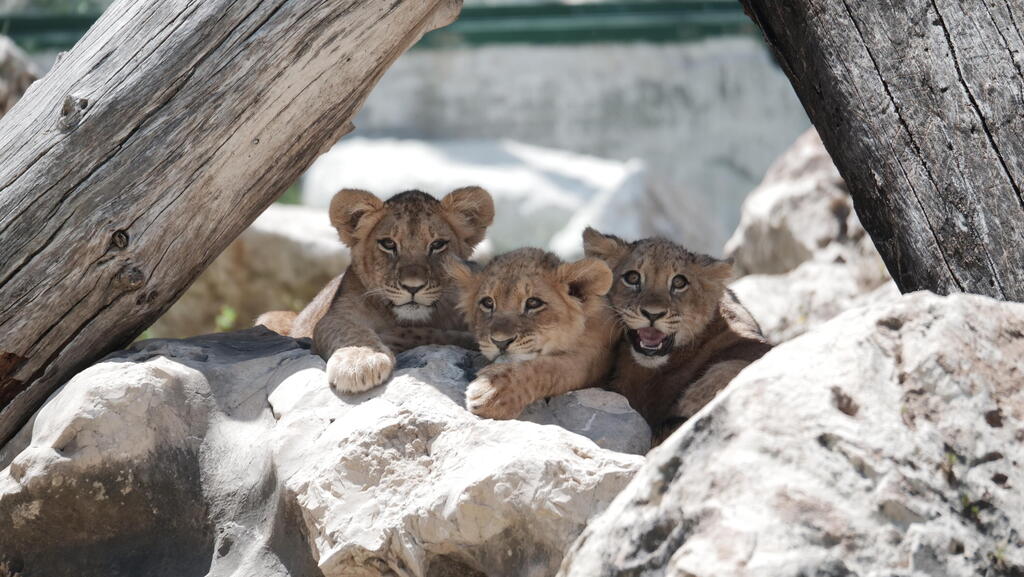Four lion cubs that were smuggled into Israel and later rescued are now drawing large crowds — and raising ethical questions — at a zoo in northern Israel.
Hai Park in Kiryat Motzkin has reported a rise in visitors during the holiday period, driven in part by the presence of the rescued cubs, believed to be between two and six months old. The animals were found in poor condition after being illegally brought into the country. Israeli police suspect the smugglers used drones to transport the cubs, likely across the Jordanian border.
Four rescued lion cubs play together in the zoo
(Video: Levi Peretz)
The cubs are currently on public display, following approval from the Israel Nature and Parks Authority (INPA), which oversees their care. But conservationists and animal welfare advocates are questioning the decision, warning that the exhibition may compromise any future effort to return the lions to the wild.
“Even though these lion cubs have been rescued from the illegal wildlife trade, they’re now being exhibited to the public,” said Dr. Nicole Benjamin-Fink, an Israeli conservationist and founder of Conservation Beyond Borders. “If they are to have a chance at reintroduction, it has to be carefully managed — like the case of Zion-Niv.”
Zion-Niv, a lion cub smuggled into Israel two years ago, was kept away from public view at the Ramat Gan Safari out of concern for his safety. He was eventually relocated to a lion sanctuary in Africa.
“Putting these cubs on display may jeopardize their rehabilitation,” Benjamin-Fink said. “Once a lion enters the trade, its true roar is taken from it, and its wildness is stolen.”
Hai Park Director Ashraf Kanaan said the decision to showcase the cubs was made in full coordination with the INPA, and that the park is also using the opportunity to educate the public on wildlife trafficking.
“We’ve stationed a guide at the exhibit to explain the dangers of the illegal wildlife trade,” Kanaan said. “We support any decision the INPA makes regarding the cubs’ future.”
Lior Regev, a wildlife guide and former Ramat Gan Safari employee who has worked in African wildlife sanctuaries, emphasized the challenges of reintroducing lions to their natural habitat.
“Lions need a pride. They need lionesses to teach them to hunt, and they need to socialize,” she said. “If they’re raised in captivity and released into the wild, they won’t survive. Right now, the zoo is serving as a temporary sanctuary.”
The cubs were brought to Hai Park in fragile health, and one was suffering from a limp, which staff say is now improving.
Get the Ynetnews app on your smartphone: Google Play: https://bit.ly/4eJ37pE | Apple App Store: https://bit.ly/3ZL7iNv
According to Uri Laniel, head of captive wildlife at the INPA, the cubs will remain in quarantine for about three months to ensure they are disease-free. The authority is reviewing international protocols for holding lions and assessing the best path forward.
“We’re exploring every option,” Laniel said. “Whatever decision is made, we know it will be closely scrutinized.”





